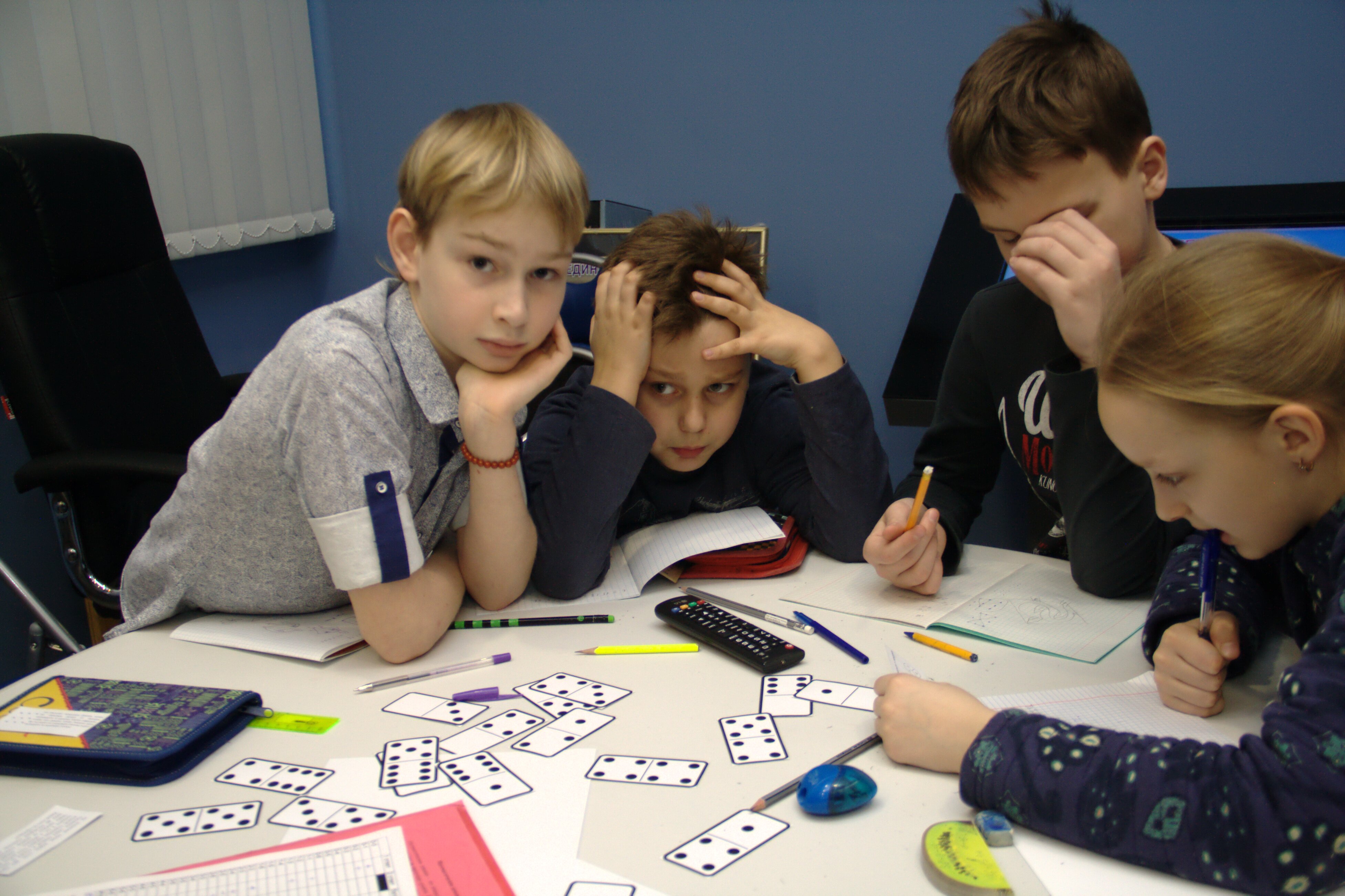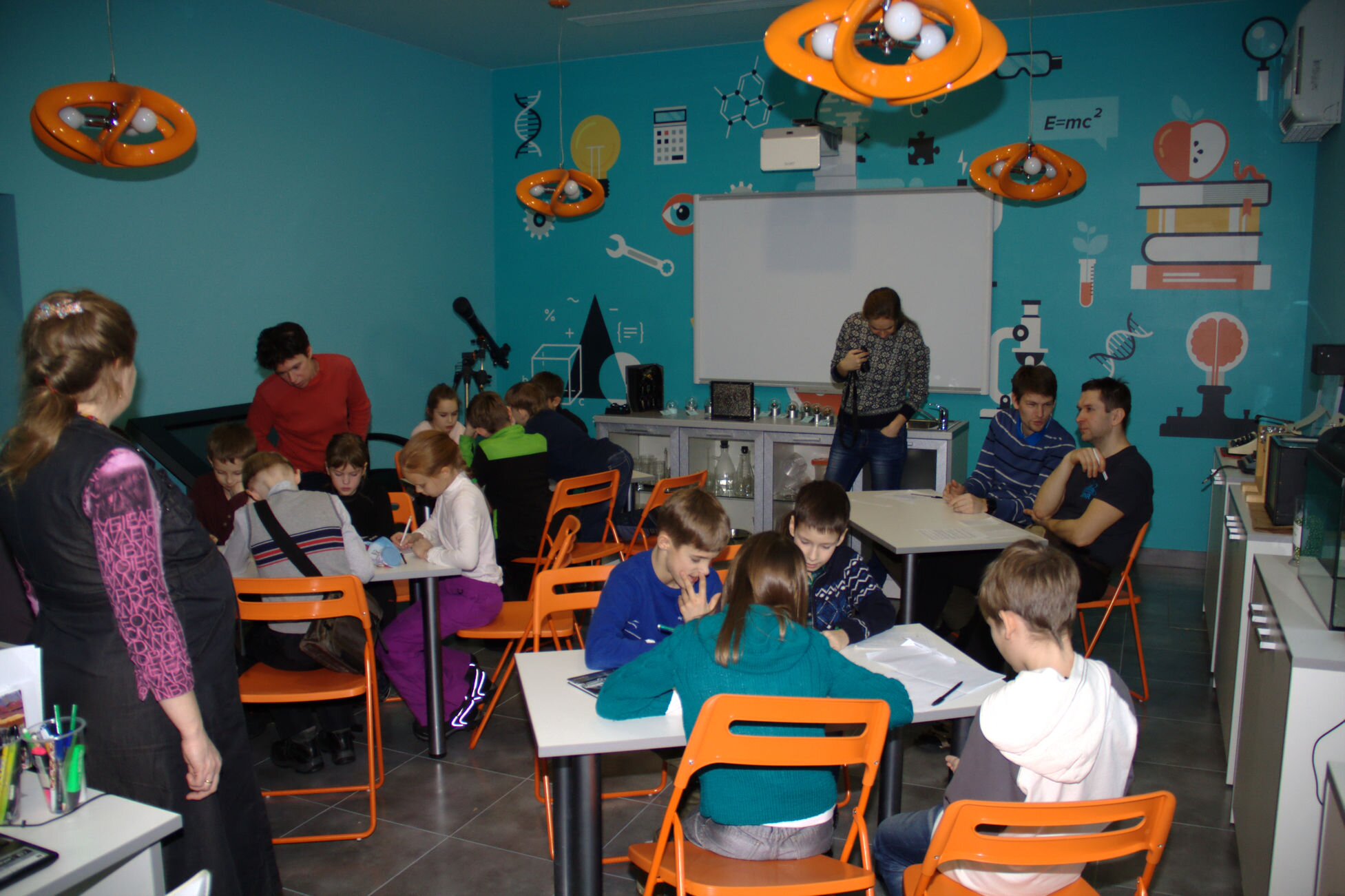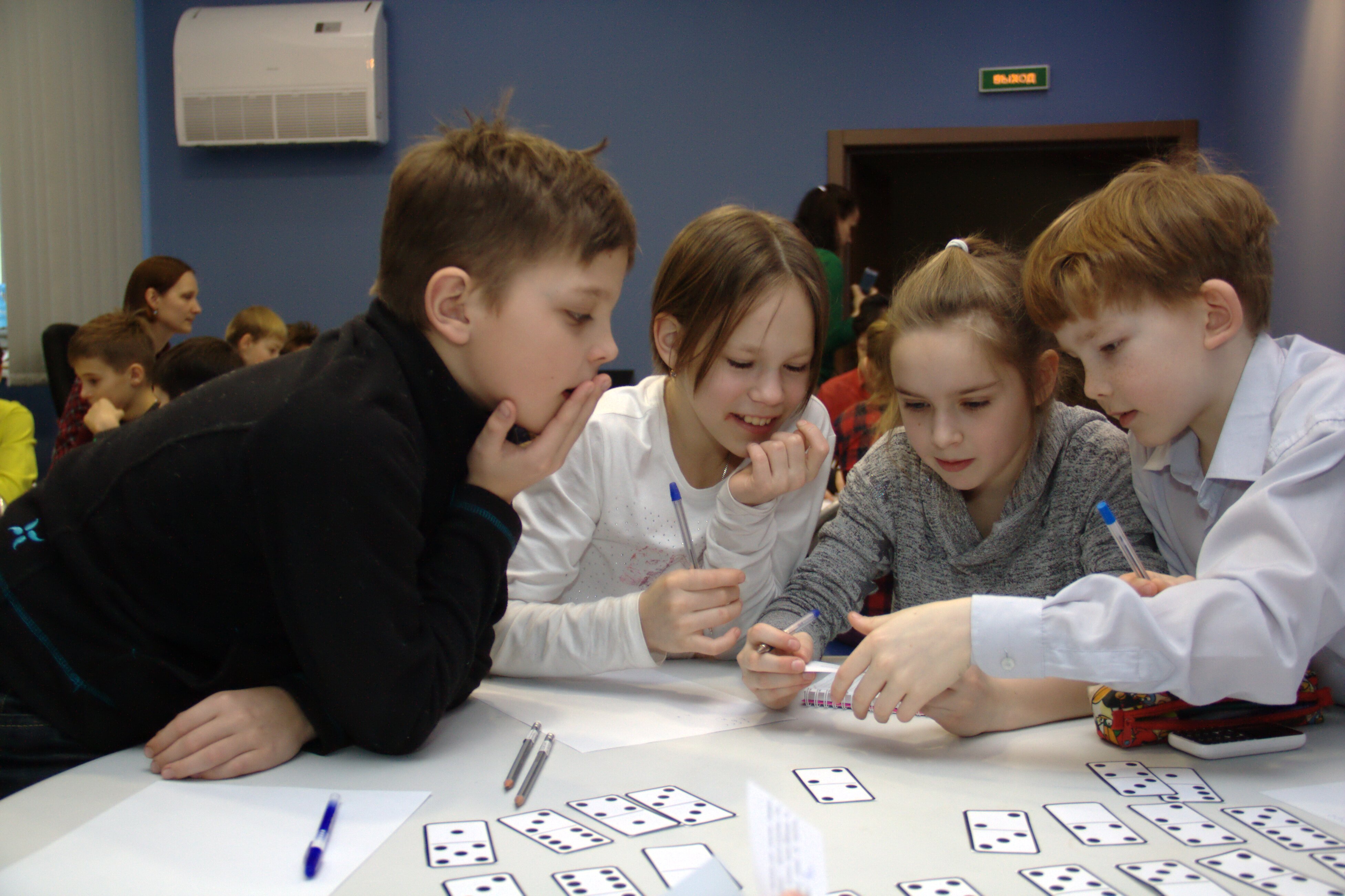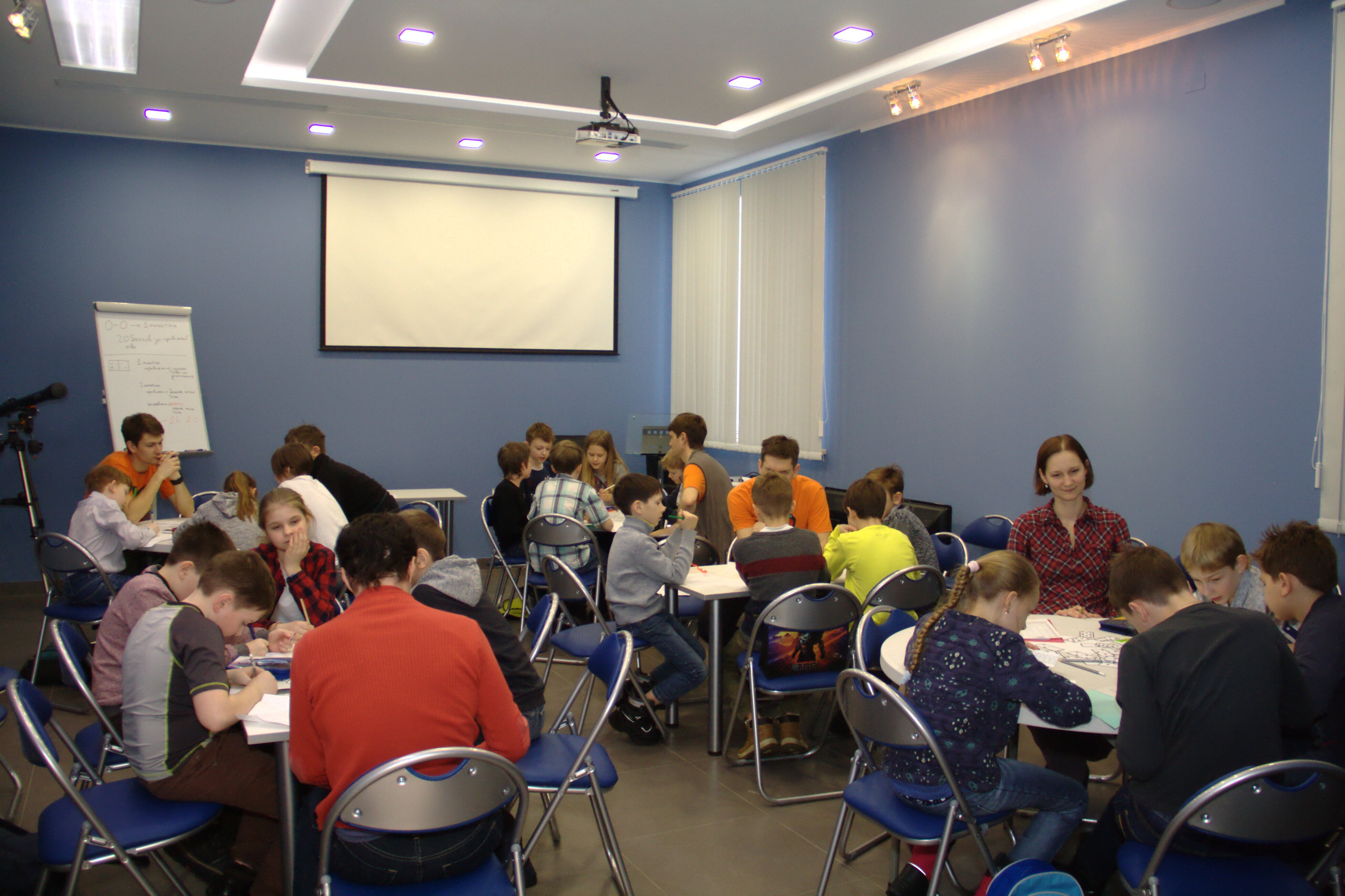Mathematical games
Education, 08 November 2017
In 2017 the Museum of History of Science and Technology of JINR suggested new academic projects for children. Thus, during the year the series of mathematical games for 3 – 7 grades students has been held in the museum. The games differ greatly from ordinary academic competitions with their rules established once and for all. The rules in mathematical games vary from game to game depending on its name. Firstly, mathematical carrousel twisted, then children played Mathematical dominoes, after that Mathematical abakus was offered to young participants (Abakus is a predecessor of a counting board – author’s note). The final competition – Mathematical auction – was held twice. The main principle of the games, as authors put it, is changing rules, while demands for speed and accuracy and children’s involvement are obligatory for all the games.
At the beginning of each game children are divided into 3 – 5 teams consisting of 4 – 6 participants. Teams are invited to accomplish arithmetical, geometrical and logical tasks. The complexity level corresponds to participants’ age. Mathematical logic is of primary importance for the games’ organizers. For example, there is such a task: if today is Tuesday, what day will be 125 days after?
Due to the mathematical abacus rules, participants have only one chance to hand in their answer. It demands accurate cooperation of team participants in both solving the problem and checking the answer before handing it in.
Due to the mathematical auction rules, 4 teams compete not just in performing ingenious mathematical tasks. As any auction presupposes, tasks are put out to tender; the primary price has been announced (in the exclusive currency of the museum – 100 dublons), and children are supposed to increase rates to win the right to offer their decisions. After all games were finished, children got sweet prizes.
The Museum of History of Science and Technology of JINR expresses great gratitude to all who helped organize and judge the five mathematical games: Elena, Yakov and Mikhail Zhabitski, Sergey Zolotnikov, and also Tatyana Razumnaya, Alexander Bednyakov and Alexander Prokhorov for help when required.
For announcements of new games, visit the museum’s web-site and also the VKontakte group “Club of future scientists”.



